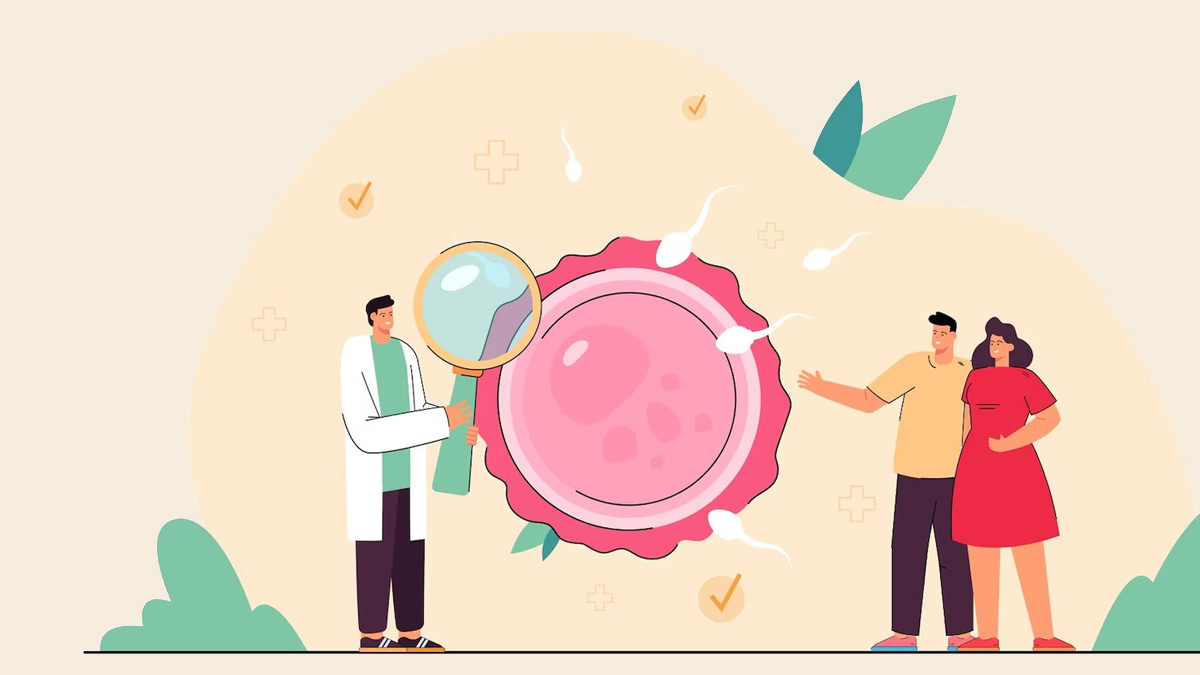
No matter which part of the world you live in, once you get married, relatives bless you with a hope to soon start a family. Without considering several other factors, your parents and in-laws might be running after you to give them a grandchild. If this is the case with you or you are getting married and want to plan a late pregnancy, we have a brief guide for you.
We connected with Dr Nisha Pansare, gynaecologist and fertility consultant, Nova IVF Fertility, Pune, Maharashtra. If you think you and your partner are not ready to embrace parenthood, you don’t have to make a decision in haste.
Dr Pansare said that the first step to planning a late pregnancy is getting fertility tests done so that you can make an informed decision. She added that couples should not make the decision based on their age. They should not assume that if they are young, they have plenty of time, and it would be easy for them to conceive when they want to plan a family.
“One should know the fertility potential prior to planning or delaying pregnancy,” she added.

Dr Pansare added that women are born with a finite number of eggs. They can be seen during the pubertal age and utilised in the reproductive age, usually between 20 to 30. With age, the reserve starts declining, and it poses a concern when speaking about fertility.
Before the fertility tests, the doctor would also ask questions about your sex life. She added that an expert would want to confirm that a couple is not witnessing issues while performing the act.
If they are experiencing an issue, they will have to speak to the concerned experts to resolve the problem. In the absence of any issue, the doctor conducts sonography, a simple test for women, in which experts check the condition of the ovaries, uterus, and egg reserve.
The doctor will rule out any abnormalities present in the uterus. If there are, they would suggest corrective measures to ensure no problem when you are planning to conceive.
In the next stage, the doctor will check the count of egg reserves. If a consulting woman is 25 or 26, the ideal egg reserve count should be more than 7878 follicles.
The expert also checks in the sonography if there is any swelling in the uterus or if the woman is suffering from endometriosis or has fibroids. In such a case, they might suggest surgery.
Dr Pansare said that if a woman has PCOS but she is ovulating, it would not have any impact on her fertility. However, if a woman with a lifestyle disorder is not ovulating and experiencing irregular periods, it might become an issue when you are planning a late pregnancy.

When you are consulting a doctor regarding late pregnancy, she would ask you about your family history. It plays a crucial role in understanding if you would face similar issues.
Dr Pansare said that the genetic history of the mother and aunts helps to understand any of them experienced issues while conceiving. If they did, there is a high chance that you might struggle with it too, and the expert would want to prepare you and lay out all the options you have.
She also added that many young couples think that they would not face any issues since they have enough time to plan for late pregnancy. However, she said that premature ovarian, in which egg reserve can drastically decline or vanish, can be a problem. The doctor said that in many women it happens after 35, but it can happen in the early of 25-30.

The doctor said that they would also do a blood test of a woman, called an anti-mullerian hormone test that would help them understand the quality of eggs. Even if you have millions of eggs in the reserve, it does not certify that they would be of premium quality.
Don't Miss: Third Month Pregnancy: Diet And Exercise Routines For Expecting Women
They would next discuss menstrual history. The doctor would confirm if the woman has a regular menstrual cycle, and if she experiences no problems when menstruating.
The next step on the checklist is to verify if the weight is in the healthy range. She added that the Body Mass Index (BMI) between 18-24 is considered healthy.
The doctor would also want to know if the person has diabetes and hypertension (Hypertension and Pregnancy). It will help the doctor predict if the woman might get gestational diabetes during pregnancy.
When planning a late pregnancy, it is not only a woman who has to answer several questions and run fertility checks, a man also has to go through the same process.
A doctor would first do the semen analysis. The ideal count should be 16 million or more.
When testing the sperm motility, it should be between 30-40%. The expert would next do a morphology test that predicts the quality of sperm, and the result should show more than 4%.
If a man is healthy, and they are not suffering from any diseases, there is no issue in delaying pregnancy. However, if they suffer from diabetes, blood pressure, or any other disease, it could be a concern.
Don't Miss: Nutritionist Shares 5 Benefits Of Eating Soaked Peanuts

Dr Pansare suggested egg freezing as one of the best options to increase the chances of conception when planning for late pregnancy. She suggested opting for embryo freezing as it has a greater chance of success.
Stay tuned to HerZindagi for more information.
Also watch this video
Herzindagi video
Our aim is to provide accurate, safe and expert verified information through our articles and social media handles. The remedies, advice and tips mentioned here are for general information only. Please consult your expert before trying any kind of health, beauty, life hacks or astrology related tips. For any feedback or complaint, contact us at compliant_gro@jagrannewmedia.com.